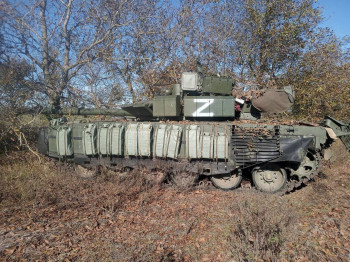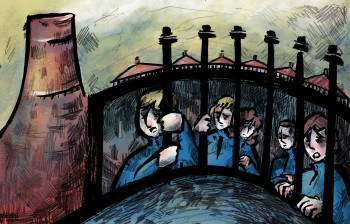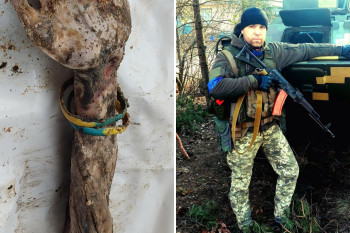Ukraine war latest: Ukraine retakes more settlements as Russians strike Zaporizhzhia again
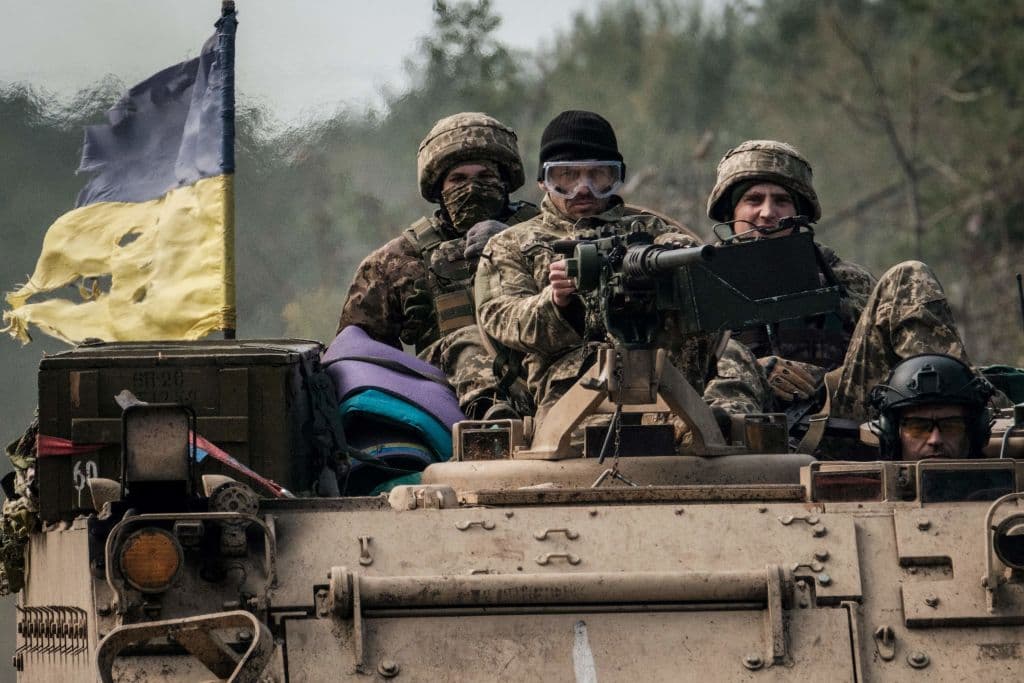
Key developments on Oct. 6
- Ukraine liberates over 500 square kilometers in Kherson Oblast in October
- Counteroffensive continues in Ukraine’s east and south
- Head of IAEA meets Zelensky, talks about occupied Zaporizhzhia nuclear plant
- At least 3 killed, 7 hospitalized after Russian strike on a residential area in Zaporizhzhia
Ukraine has liberated over 500 square kilometers of land in Kherson Oblast since the beginning of October, President Volodymyr Zelensky said on Oct. 6.
Ukrainian forces have seen “quite convincing successes” in Kherson Oblast despite the difficult front-line situation that “changes quickly,” according to Southern Operational Command spokesperson Natalia Humeniuk.
Ukrainian forces are advancing further into Kherson Oblast, making it as far as 20 kilometers in several directions along the front line, Humeniuk said. About 80% of the oblast is still occupied by Russia.
While continuing their push, Ukrainian forces are squeezing the Russian troops against the western bank of the Dnipro River, Humeniuk said.
According to the U.K. intelligence, a Russian withdrawal across the Dnipro River "makes defense of the rest of Kherson Oblast more tenable; but the political imperative will be to remain and defend.”
Russian troops are determined to hold on to Kherson as long as possible, with the city being the only regional capital Moscow has been able to capture since Feb. 24. Pulling back would be humiliating, since Kherson Oblast is among the four Ukrainian regions Moscow illegally declared annexed on Sept. 30.
But retreating from Kherson now would allow the Russian troops to cross the Dnipro in an orderly way, avoiding further loss of their equipment and saving soldiers’ lives. Back in September, the New York Times reported that Russian President Vladimir Putin had personally rejected requests from his commanders to withdraw from Kherson.
A barrage of criticisms directed at the Russian military leadership has been growing, both inside Russia and among Russian proxies in Ukraine.
In an astonishing dissent, one high-profile Russian collaborator in Kherson said that Russian Defense Minister Sergei Shoigu should consider suicide over Russia’s shameful defeats in the war.
Eastern counteroffensive
In the northeast, Ukrainian forces have advanced 55 kilometers deep into occupied territory and recaptured 2,400 square kilometers since Sept. 21, Oleksiy Hromov, a top officer at the General Staff, reported.
Russian forces are still holding on to the last small patch of Kharkiv Oblast that they still occupy, Hromov said at a briefing. The Russian Defense Ministry’s maps from a few days ago showed a mass withdrawal from the northeastern region, suffering a humiliating military defeat.
Recapturing swathes of land on the eastern side of the Oskil River in Kharkiv Oblast, Ukrainian forces are pushing into neighboring Luhansk Oblast, an almost completely occupied easternmost region.
Luhansk Oblast Governor Serhiy Haidai said on Oct. 6 that Ukrainian forces have liberated the village of Hrekivka, on the border with Kharkiv Oblast. The military hasn’t officially confirmed the report yet.
Haidai said that Russians forces in occupied Luhansk Oblast have intensified their “filtration” of the local population, likely fearing a deeper counteroffensive. They are trying to prevent residents from fleeing and have imposed curfews to pick out “Ukrainian saboteurs” in two large cities, Haidai said.
Zaporizhzhia Nuclear Power Plant
World leaders condemned Moscow a day after Putin had decreed the illegal seizure of Zaporizhzhia Nuclear Power Plant, occupied by Russia since early March.
Rafael Grossi, director general of the International Atomic Energy Agency (IAEA), arrived in Kyiv for meetings on Oct. 6, saying that the situation was “now more urgent than ever.”
As part of his goal to establish a safety zone around the nuclear plant, Grossi is also set to travel to Russia “soon” to strike a deal with both sides. It’s not clear whether he will be making a second visit to the plant.
Months-long shelling near the plant, the largest in Europe, has raised an international alarm over fears of a possible nuclear disaster. Ukraine and the West have accused Russia of the provocation, but Moscow continues to deny the blames.
Following a meeting with Grossi on Oct. 6, Zelensky said that there were up to 500 Russian soldiers at the site and urged the U.N. nuclear watchdog to condemn Putin’s recently signed decree.
Grossi agreed that Russia’s attempt to annex Ukraine’s Zaporizhzhia plant is “a violation of international law,” saying that the IAEA will only communicate with Ukraine about related issues. He said he would increase the number of permanent IAEA staff at the site from two to four people.
Ukrainian staff still working at the plant are "under severe pressure” and a nuclear accident remains "very possible," Grossi said.
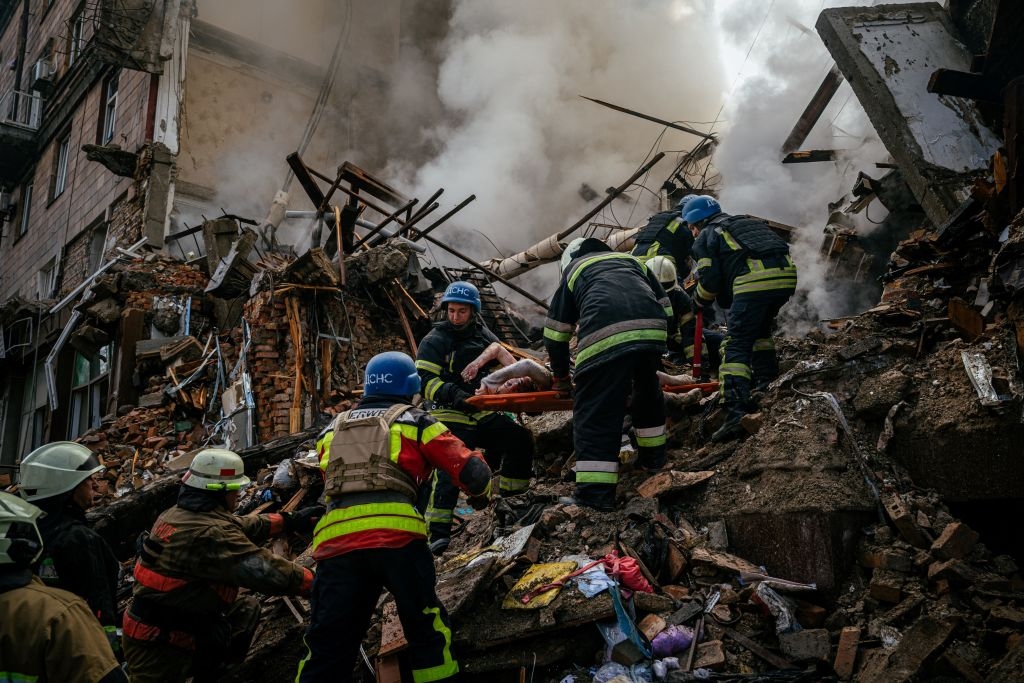
Casualties and attacks
Russian forces launched six missile strikes and seven airstrikes across Ukraine on Oct. 6, Ukraine’s General Staff reported.
For the first time since August, Russian missiles were fired from the territory of Belarus on Oct. 6, Hromov said.
Ukraine's air force also said it had downed four Iranian drones in five hours.
Early in the morning, seven Russian missiles struck the center of Zaporizhzhia and killed at least three people, Governor Oleksandr Starukh said.
Seven others were hospitalized, including two four-year-old boys, but more people could be under the rubble of the destroyed residential building, according to the governor.
“Specialists continue to work at the scene,” Starukh said, as of 5 p.m.
In Donetsk Oblast, Russian forces blew up a dam and flooded the town of Raihorodok, with a pre-war population of 3,900 people, according to Ukraine's General Staff.
Across Ukraine, Deputy Head of the President's Office Kyrylo Tymoshenko reported on Oct. 6 that 20 people were killed and 22 others were wounded over the past day.

